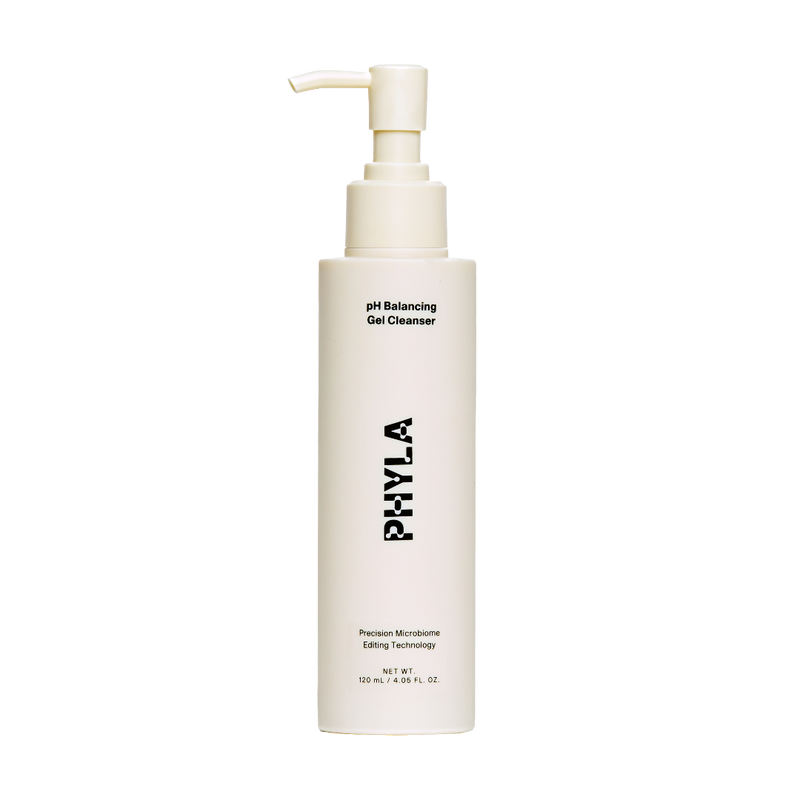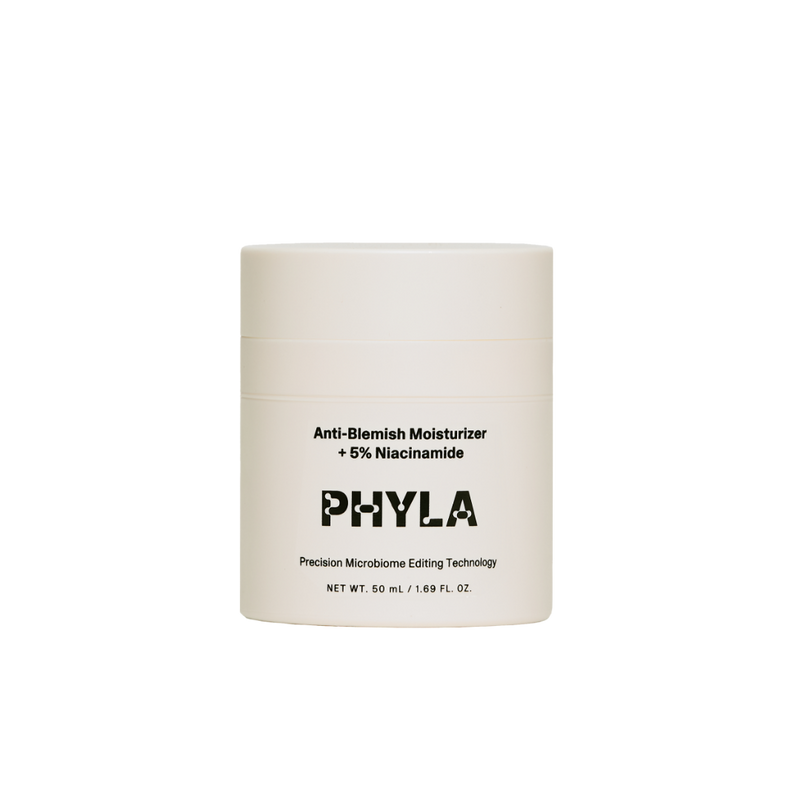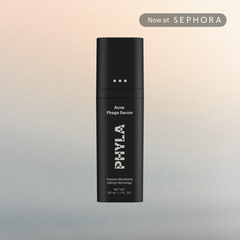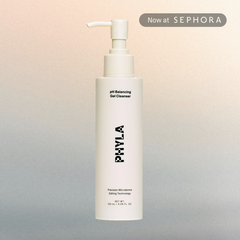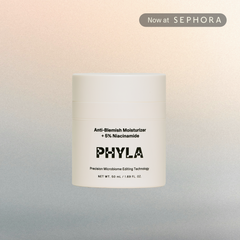All Natural Skincare for Acne Prone Skin
Acne prone skin can be frustrating, especially if you’re dealing with chronic flare ups. Discover tips and tricks on all natural skincare for acne prone skin.

Acne prone skin can be frustrating, especially if you’re dealing with chronic flare ups. Trying new products can feel daunting because you really never know how your skin might react to it––FYI, typically not that great! So not only is your skin acne prone, it’s also highly sensitive. Fun times!
Thankfully, there are alternatives you can try that are natural and may be gentler on your skin than comercial skincare products. The trick is to try them out and assess how well your skin responds. You may find a natural skincare routine that blows all those commercial products you’ve tried in the past right out of the water.
What is Acne Prone Skin?
Your skin is mostly divided into three main types; oily skin, dry skin, and combination skin. However, some people also consider sensitive as a skin type, though sensitive skin can be oily, or dry, or even combination. Similarly, acne prone skin is a category similar to sensitive skin. Often, acne-prone skin is also oily skin.
Acne prone skin faces frequent and numerous breakouts, sometimes without a noticeable cause that you can discern. It’s also more prone to scarring, blemishes, whiteheads, blackheads, and other irritations.
Unfortunately, blemish prone skin is largely considered to be hereditary. This means that you naturally have skin that features overactive, oil-producing glands. These glands create an overdose of sebum and enlarge your pores, all of which contribute to acne.
Additionally, hormonal changes, stress, lifestyle, diet, and even your facial care products can play a role in triggering your acne. However, genetic though it may be, there are still ways to control and overcome your acne. This is done mainly by using clean, nourishing ingredients and implementing a few handy tips and tricks.
All Natural Skincare For Acne Prone Skin
There are many different natural ingredients that may be beneficial in treating or preventing acne. Keep in mind that everyone’s skin is different and responds to things differently, so your mileage may vary. It’s worth spot testing anything new you try in an area that isn’t obvious to make sure your skin doesn’t have a negative reaction before applying it to your face.
Aloe Vera
Aloe vera has been used for its medicinal properties for ages. It’s a plant from the cactus family, with long leaves that are filled with gel. This gel has many uses in skincare, not to mention your overall health. Some people even like to drink aloe vera juice because it has such great benefits.
The best thing about aloe vera gel is that it has excellent anti-inflammatory and antibacterial properties. These properties make it wonderful for fighting acne because it soothes your skin while also killing off bacteria from your skin’s surface that’s causing you problems.
Try applying a thin layer of aloe vera gel to acne sores and watch it go to work. You can even use it as a moisturizer if you want, because aloe vera has a high water content. Many people like to use aloe vera after overexposure to the sun, to soothe burns. If it can soothe sunburns, why not the inflammation associated with acne?
Tea Tree Oil
Tea tree oil is practically famous for its uses in fighting and treating acne. It too is naturally anti-bacterial and anti-inflammatory. When applied to acne-prone skin, it fights and kills the acne causing bacteria p. acnes and also soothes any inflammation the bacteria may cause, much like aloe vera.
Not to mention, it can also help reduce the size or swelling of your pimples. Use caution though. Although completely natural, tea tree oil is quite intense and should not be applied to your skin without first mixing it with a carrier oil.
Many people with an acne skin condition love to use coconut oil as a carrier because it also has beneficial properties your skin will love. You can use tea tree oil both as a serum and as a spot treatment.
Jojoba Oil
Jojoba oil is an oil that is the closest in effect to the natural sebum produced by your skin. If your skin is dry and dehydrated, it sends your oil glands into overdrive. This results in an over abundance of sebum, which can result in acne.
So, jojoba oil works to regulate the amount of sebum on the skin. It also naturally contains certain compounds which may be beneficial in soothing your skin and reducing swelling and redness around acne spots.
Jojoba oil can be used as it is, or mixed with another skincare product like your favorite face cream or a clay mask before bed at night.
Neem (Azadirachta Indica)
In Asia, neem has been in use for a very long time due to its medicinal properties. Neem is basically an herb with many helpful qualities, including anti-inflammatory and anti-bacterial properties.
Neem triggers an oil regulating mechanism in your skin when applied topically. This is because neem works as an astringent and reduces the size of your enlarged pores, which then reduces the oil your pores produces. Not to mention it reduces the risk of dirt, debris, and bacteria building up in your pores. Less buildup means less potential for an acne flareup!
Turmeric
Turmeric is a miraculous natural ingredient that is famous for its anti-inflammatory properties. It is also anti-bacterial and cleanses off acne causing germs and bacteria from the surface of your skin. Due to its anti-inflammatory properties, turmeric can not only help soothe existing acne, but it can also prevent new acne pimples from being triggered.
This is all because of a special compound present in turmeric, called ‘curcumin’. This compound is an antioxidant that helps your skin fight back against damage, even the damage caused by adult acne and breakouts like dark spots or uneven skin tone. Turmeric can also be used as a spot acne treatment in the form of a paste made with honey and water.
Apple Cider Vinegar
Apple cider vinegar is a vinegar made by fermenting cider. It’s acidic in nature, and therefore helps to kill bacteria and germs. Apple cider vinegar contains certain chemical compounds that make it especially effective against the p. acnes bacteria.
These compounds not only fight off and kill p. acnes bacteria, but they can also soothe any damage and inflammation caused by this bacteria. Apple cider vinegar cleans out clogged pores, which could minimize your risks of triggering future acne.
It also helps to regulate and control the sebaceous glands, and therefore sebum production, in your skin. However, it’s imperative to note that apple cider vinegar should always be diluted before applying to your skin to avoid any potential harm.
Oatmeal
Oatmeal is good for overall health, including your skin’s health. Oatmeal contains a high amount of zinc, which is known to relieve inflammation. Additionally, it has antibacterial properties and can kill acne breakout causing bacteria, both when applied to the skin and when ingested. Finally, oatmeal is very absorbent and can soak up any excess oil and sebum from your skin and help reduce the risk of triggering an acne flare up.
Green Tea
Green tea contains a high amount of antioxidants, especially polyphenols. Antioxidants are essential for keeping your skin balanced, since they help absorb the good stuff your skin needs to thrive, and get rid of the toxins.
Green tea is also known for its anti-inflammatory properties. It works excellently as a toner and also works to reduce the amount of sebum that is being produced. Some research suggests that green tea may even help to reduce the amount of p. acnes bacteria on your skin.
Honey
Honey has been used as a beauty and skincare treatment––and other body issues––for centuries. Honey is known to help balance the bacteria on your skin, evening out the good and the bad. This is especially helpful in the case of acne, because it kills off proliferating acne causing bacteria.
Additionally, it absorbs deeply into your skin to help unclog pores and hair follicles and is rich in antioxidants. Honey also speeds up wound healing, which makes it excellent for applying directly onto pimples and acne spots to heal skin that’s broken and soothe irritation.
Acne prone skin can certainly present challenges when trying to achieve clearer skin, but by incorporating natural ingredients into your daily skincare routine, you can phase out any commercial grade products that could be making your situation worse and replace it with things that are clean, nourishing, and effective. It certainly doesn’t hurt to give them a shot! You just never know what your skin may respond to.
https://www.tiege.com/blogs/news/what-exactly-does-acne-prone-skin-mean
https://www.medicalnewstoday.com/articles/322455#lifestyle-changes
https://www.femina.in/beauty/skin/best-acne-fighting-natural-ingredients-153736-3.html


